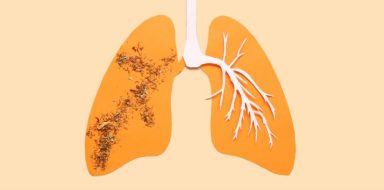How to Deal With Postmenopause Anxiety
Menopause is a very sensitive and, in some cases, a tough stage in the life for a woman. Her body and mind go through several changes, and some women may suffer with postmenopause anxiety. Unfortunately, in today’s society, mental health does not get the same amount of attention as other physical health conditions, and as a result, postmenopause anxiety is often neglected, which leads to a decreased quality of life for those that suffer from this condition.
What Is Menopause?
Menopause refers to the end of a woman’s reproductive cycle, when the ovaries stop releasing eggs and reproductive hormones, including estrogen and progesterone. When this stops, pregnancy is no longer possible.
The natural process of menopause is divided into three phases:
Perimenopause
Perimenopause is the time where most of the symptoms of menopause start to manifest. This stage starts between 4 and 10 years before menopause, typically occurring during the early 40s, but may even start during the mid to late 30s. During this phase, there is a reduction in the release of eggs and reproductive hormones, which results in irregular periods.
Menopause
A woman reaches menopause when she misses her menstrual period for 12 consecutive months. At this point, the ovaries stop releasing eggs and there is a drop in reproductive hormone levels. Typically, menopause occurs during the mid-40s to early 50s, with an average age of 51 years.
Postmenopause
Postmenopause is the stage right after menopause. While most of the perimenopausal and menopausal symptoms start to subside, other issues, including anxiety and depression, as well as osteoporosis and heart disease begin.
Symptoms of Menopause
In addition to the end of menstruation, menopause can cause several other symptoms:
- Hot flashes and/or night sweats
- Mood swings
- Hair loss
- Obesity
- Heart palpitations
- Headaches
- Trouble controlling bladder
- Loss of attention
- Decreased concentration
- Vaginal dryness
Understanding Postmenopausal Anxiety
Due to extreme shifts in hormone levels, a woman goes through an emotional roller coaster ride during postmenopause. The feelings during this stage are quite similar to premenstrual syndrome (PMS), but last for a longer period of time.
In addition to hormonal changes during this time, many women also deal with social changes around the same time. Children may be moving out of the house and they may lose a parent or spouse, which can further complicate the situation.
All of these factors combined can lead to postmenopausal anxiety and may even lead to chronic depression.
Symptoms of Postmenopausal Anxiety
The symptoms of postmenopausal anxiety are quite the same as any other anxiety disorder:
- Panic attacks and phobia
- Insomnia
- Sweaty palms
- Breathing problem
- Nausea
- Dizziness
- Dry mouth
- Palpitations
Can menopause cause thyroid problems? Estrogen levels might cause a thyroid hormone imbalance. Learn more here.
Warning Signs of Postmenopausal Anxiety
Often times, there are warning signs before postmenopausal anxiety takes hold of your life:
- Anxious thoughts (especially early in the morning when you first wake up)
- Disturbing nightmares
- Overreacting to everything
- Excessive irritability
Treatment for Postmenopausal Anxiety
While feeling anxious every now and then is completely normal, when it is severe and negatively affects your daily life, it needs to be treated appropriately. There are various treatments for postmenopausal anxiety.
Hormone Replacement Therapy
Hormone replacement therapy (HRT) is the most common treatment for menopausal symptoms including hot flashes and osteoporosis, as well as for postmenopausal anxiety disorders. A drastic drop in reproductive hormones can induce anxiety and panic attacks and these medications can help stabilize the level of these hormones. HRT is usually taken orally in the form of a tablet or through the skin via patches. However, HRT is also available in the form of creams, gels and vaginal suppositories.
It’s important to note that HRT may increase the risk of stroke, cardiovascular diseases and breast cancer in certain individuals. If you have had your uterus removed, ensure that your doctor is aware of this before initiating treatment as estrogen replacement therapy increases the risk of endometrial cancer in women without a uterus.
You must thoroughly discuss your medical history with your physician before undertaking the therapy. If you decide that the benefits of this therapy outweigh the associated risks, your doctor will determine whether your treatment will be combined estrogen and progesterone, or estrogen only (ERT).
Other Medications
If your anxiety does not subside on its own, then your doctor may prescribe antidepressants to help manage your symptoms. Additionally, certain antidepressants also help to reduce other menopausal symptoms including hot flashes, night sweats and skin flushing.
Benzodiazepines (Xanax, Valium) are the most common form of antidepressants prescribed around the globe. They take just 30 minutes to one hour to relieve sudden panic attacks or anxiety episodes. However, these are quite addictive and are not suitable for long-term use. Additionally, benzodiazepines come with various side effects:
- Drowsiness
- Impaired speech
- Memory loss
- Blurred vision
- Upset stomach
- Headache
To treat chronic anxiety problems, selective serotonin reuptake inhibitors (SSRIs), including Prozac, Zoloft and Paxil, are prescribed. Unlike benzodiazepines, they do not treat sudden panic attacks of anxiety episodes; it can take up to four weeks to start taking effect. Just like benzodiazepines, there are several side effects:
- Drowsiness
- Nausea and vomiting
- Diarrhea
- Headache
- Dry mouth
- Sleep difficulties
- Dizziness
- Agitation, nervousness
- Sexual dysfunction
- Changes in appetite
It’s important to take the complete course of treatment that your doctor prescribes, because abruptly stopping antidepressants can lead to severe withdrawal.
Natural Remedies
There are ways you can tackle anxiety without depending too much on medication. Even if you are taking medicines or therapies, these lifestyle changes will maximize the effect of the medication.
- Staying active
- Quitting smoking
- Reducing alcohol consumption
- Reducing caffeine consumption
- Getting adequate, quality sleep
- Practicing meditation
- Consuming a healthy diet
- Wearing comfortable clothes
- Trying acupuncture
- Attending a support group
In Conclusion
Although menopause can be life-changing, you do not have to live with crippling postmenopausal anxiety. There are various treatments available and lifestyle changes that you can make to help manage your symptoms and improve your quality of life. Try to stay positive, have fun with your kids and grandkids, and most importantly, take care of yourself.







